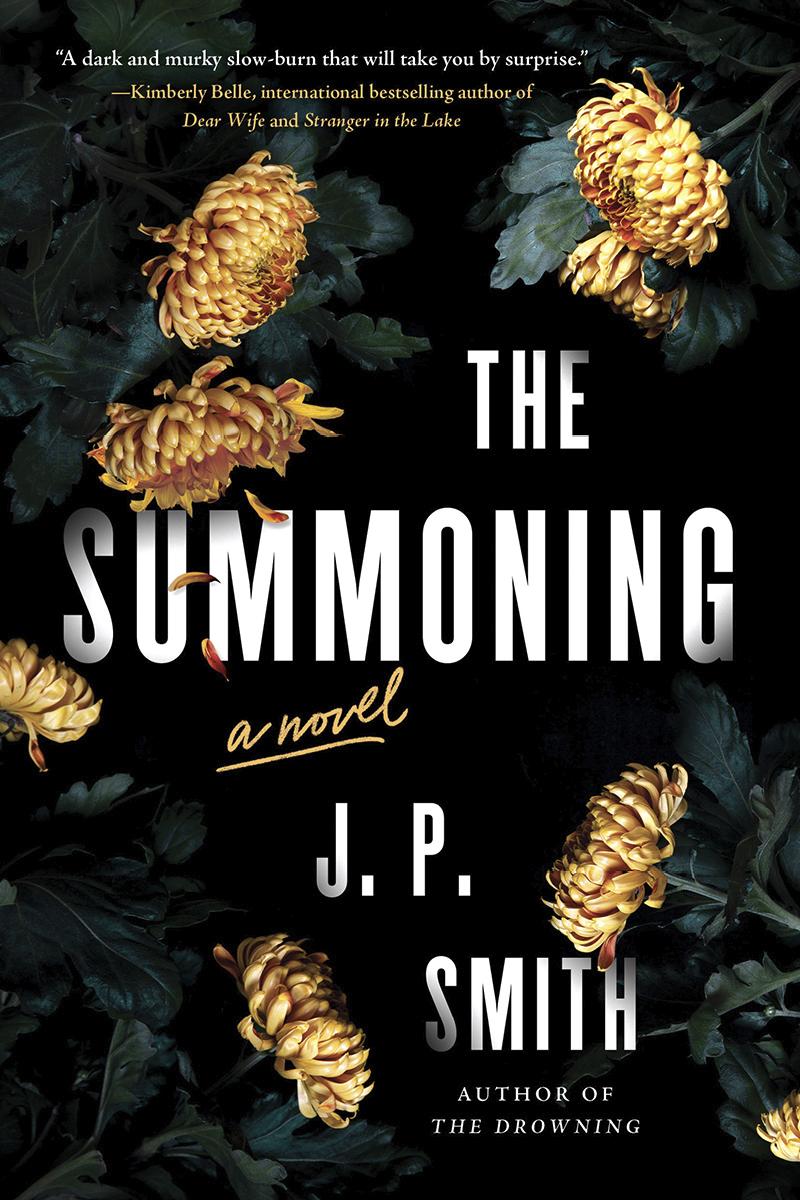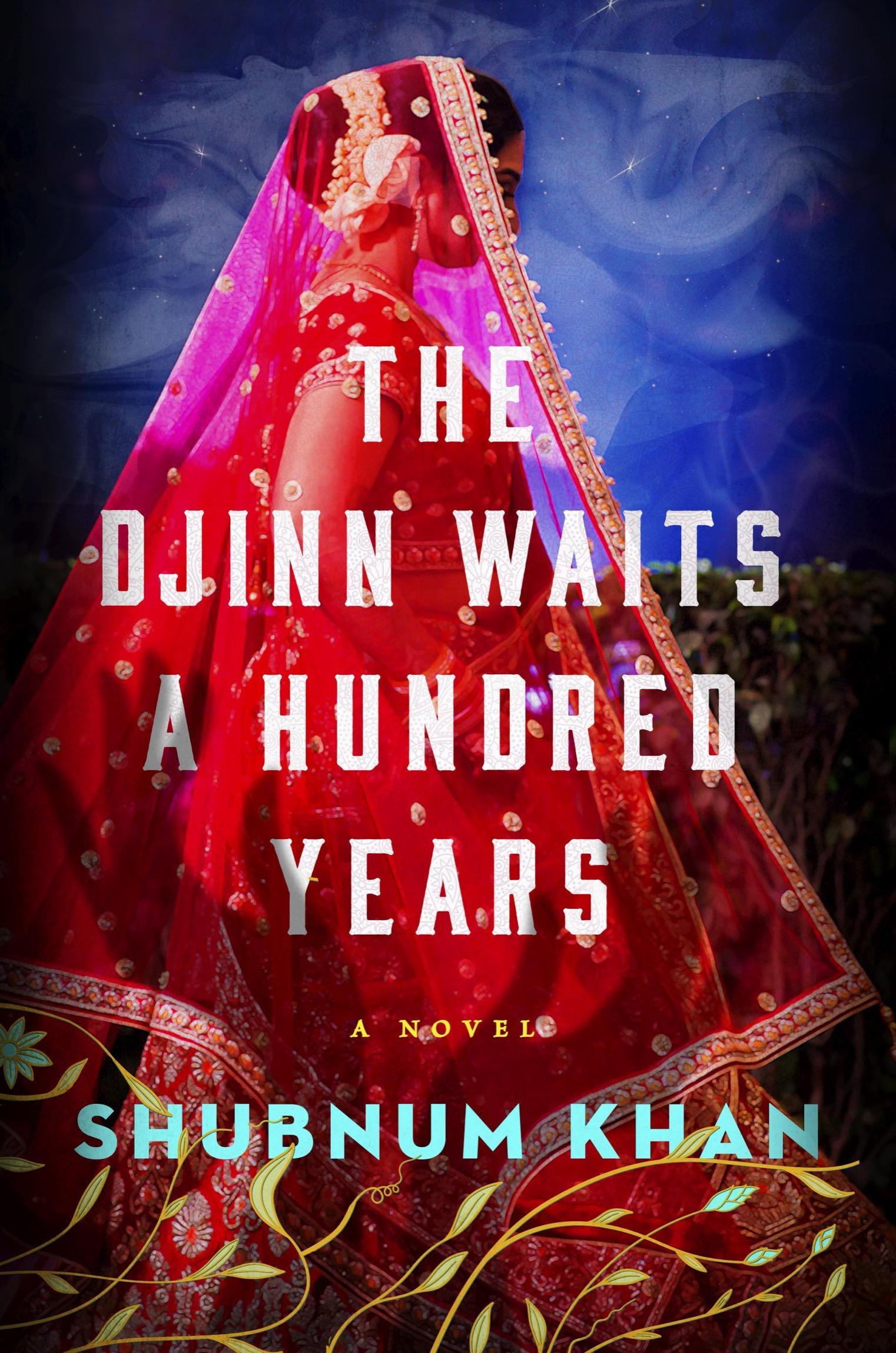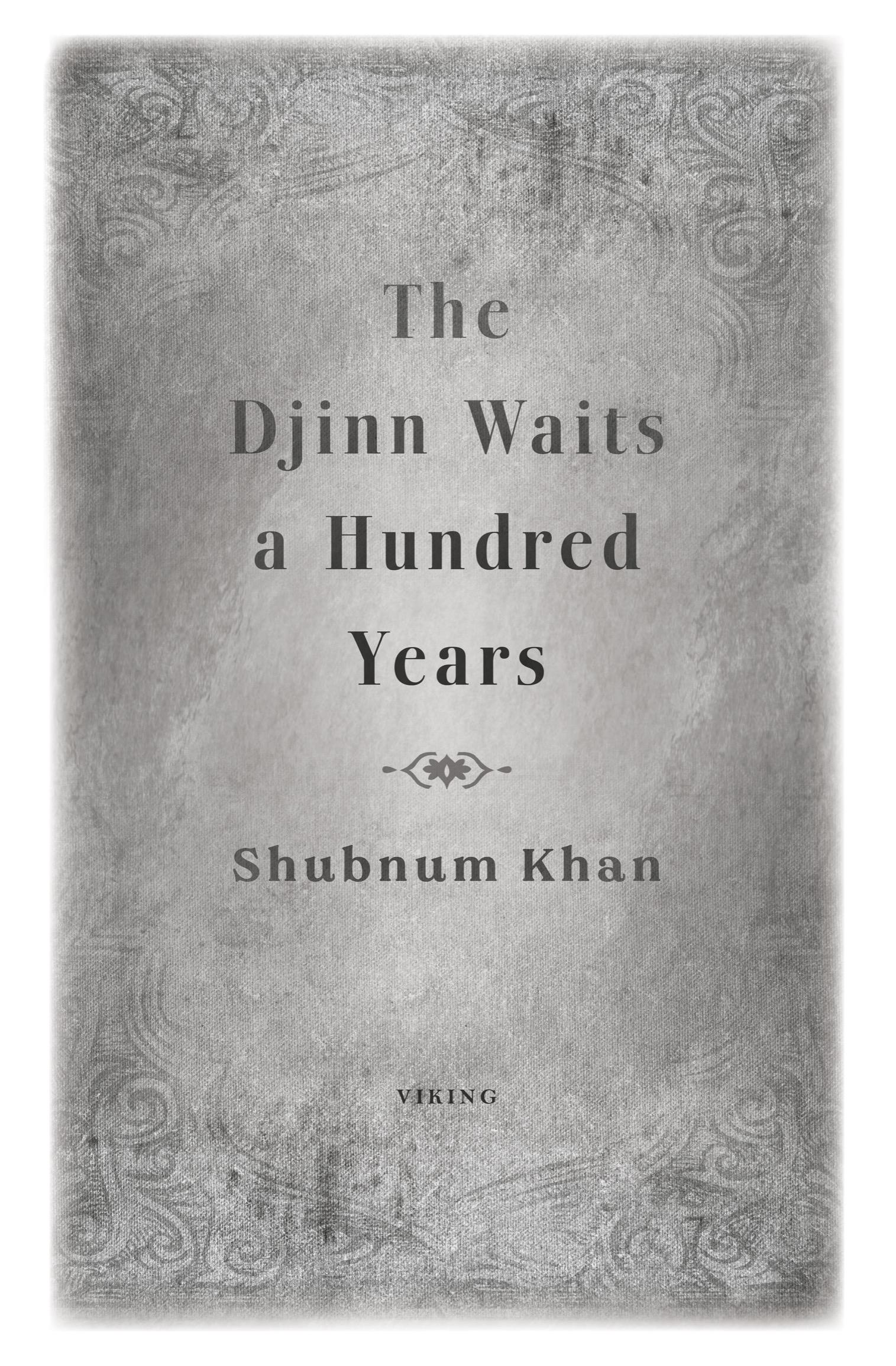Prologue
I1932
n an old wardrobe a djinn sits weeping. It whimpers and murmurs small words of complaint. It sucks its teeth and berates the heavens for its fate. It curses the day it ever entered this damned house. It closes its eyes and tries to imagine a time before it came here, before it followed the sound of stars from the shore, before the world turned dark and empty.
Something thuds somewhere and the djinn is drawn from its misery by a commotion happening outside. It stops to listen and sounds begin to emerge; doors bang, windows shut, and things are thrown about. There are shouts as orders are given and people hurry through passages. They run up and down and bump heavy things along the stairs.
The djinn pauses, then it uncurls its limbs, swings open the cupboard, and steps out.
There is the patter of footsteps, then the front door slams downstairs and everything is suddenly still.
The djinn steps into the passage and looks around curiously. The floor is scattered with clothing and bedding. It wanders into the rooms; in a child’s bedroom, next to a smoking fireplace, twenty-seven plastic soldiers wait for a French army to advance. In a woman’s bedroom, a silk camisole slips off a swinging hanger in a closet.
The djinn creeps downstairs. In the kitchen, a dish of potatoes soaks beneath a dripping tap. Steam rises from a set-aside kettle. A basket of fresh laundry waits to be ironed.
The djinn wanders into the long dining room, among the high-backed chairs, and peers into the entrance hall where a grandfather clock ticks loudly. It pulls open the heavy front doors and looks into the bright, clear light of early morning. The stone stairs are strewn with opened trunks and scattered books. The driveway lies empty. The djinn steps outside into the pale pink light and looks to the still, shimmering ocean. It turns to the looming house behind and wails.
One
N2014
o one in Durban remembers a Christmas as hot as this. The heat is a living breathing thing that climbs through windows and creeps into kitchens. It follows people to work and at queues in the bank and on trains home. It crouches in bedrooms, growing restless until at night in fury it throttles those sleeping, leaving them gasping for breath. It sweeps through the streets and bursts open pipes, smashes open green guavas, and splits apart driveways. It burns off fingerprints and scorches hair and makes people forget what they are doing and where they are going so that they wander around beating their heads.
At the taxi rank in town people wave newspapers under their arms and wipe their foreheads with pamphlets that promise to bring back lost lovers. Witch doctors’ phone numbers drip down their temples and into their pockets in inky-blue puddles. Bananas blacken in the sun on pavement tables. The humidity grows and strangers are drawn to one another without meaning to and they cling together in a sweaty unhappy mess.
Out in the suburbs people sit in their inflatable pools with party hats and sip cheap wine from plastic cups. They eat bunches of litchis and hunks of watermelon and burn meat black on the braai. Maidless madams push hair out of their eyes as they hang up washing and count down to the end of the holidays. Dirty dishes pile up in sinks, garbage bags burst open with maggots.
At the coast the sky opens wide and burns the sea white. Little children in multicolored swimsuits skip across the hot sand and shriek in thrilled
agony. Families with pots of biryani and lukewarm Coke sit under small umbrellas fanning themselves with Tupperware lids as they dish rice onto paper plates.
The pier stretches on to eternity like a foreboding finger.
SANA MALEK WINDS DOWN her window and searches for a breeze. The dark curtain of hair flies off her neck to reveal her mother’s chin, and she turns this way and that as she struggles to make it her own. She is neither girl nor woman, hovering in that space between the two, where at the edge of her thoughts, curling at the eaves, is the glimpse of a fluttering light that promises something wonderful: a knowledge that the world is going to change.
She carries it close to her chest like a secret box.
She is going Home. It is not really home, but her father says it is because he believes it. He says Home can be many places, even places you haven’t been before. He says Home can also be a memory if you return to it enough. Sana wants to know exactly how many times you have to return to make a memory Home and her father says you will know when it happens.
Which isn’t really an answer but she accepts it anyway.
She accepts many things about him, like the fact that he lives by a collection of axioms of his making: Home can be a memory, rivers are more reliable than roads, and the ground keeps problems in. She accepts he will never be like the fathers she reads about, strong-minded and determined, wearing suits and cracking knuckles. She accepts that without her mother he has lost some anchor and like a ship he has strayed off into uncharted waters. And so when he announces one morning that he has finally found Home, she is not surprised and simply packs up and leaves with him in their Isuzu.
Since her mother’s death four years ago her father has become obsessed with coastal towns, marking cities along maps. He studies weather graphs and learns about the histories of towns along the South African coast. The
west coast, he says, has many good things, like mussels and otters and small, wild roads, but it is cold and windy and there are too many white people. You can’t trust a place with too many white people, he says. The east coast has warmer waters, smoother stones, and a brighter sun—and warm places help you forget the past. They help you leave behind the painful things, he adds.
When they enter the city, the salt hits the air and a streak of blue skims the horizon. They work their way toward the ocean, passing little shops, conference centers, and brick buildings, and come to a knot of streets filled with graffiti, the smells of cooking food, and blaring foreign music. As they move past Nigerian pawnshops and Somali haberdasheries, African immigrants give way to Asian ones as Pakistani chicken tikka stalls emerge between Chinese fashion outlets. Farther down, Indian immigrants adjust the signs of their small spice stores, shift uneasily away from the crowds of new foreigners, trying to make it clear they are not as fresh off the boat. They tack signs onto their storefronts that say ESTIMATED 1918 and mutter about the good old days when everything did not come from China, when customers filled their stores searching for quality cloth and spices.
The secret box in Sana’s chest throbs. She is on the brink of womanhood and everything feels full and heavy with expectation; there are Discoveries That Are Waiting and Experiences to Be Had, and for a moment she allows herself the pleasure of wondering what a new life will be like.
Everything feels shivery and waiting.
“I think we’re close,” her father says, pointing to the small mosque with a green dome on the side of the street. He turns down a narrow road between apartment buildings that press so close together people can pass notes or pots between the windows, if they like. After a moment the tight buildings fall away and the land opens up around them.
They are driving up a hill along the ocean.
At the top they find a rusting gate, which she swings open for the Isuzu to pass. Ahead of them, in front of the driveway, stands a large house distorted by the shadows of the setting sun. Its windows seem to turn like empty eyes to watch them as they drive up.
Sana wonders if Home can be something that swallows you up.
They turn into a gravel driveway, and in the last of the light Sana sees that the entrance has the crumbling stone letters “Akbar Manzil” above it. She looks up and on the top floor she sees a figure: a girl outlined in the arched window above, watching them. Sana’s breath catches and she closes her eyes quickly. She tells herself she is imagining things, that she is just tired from the journey. That nothing can follow her here. She counts to ten and opens her eyes.
The window is empty.
She sighs in relief and jumps out of the car and begins helping her father off-load the luggage. As she heaves out bags, she hears the front door open. In a pool of yellow light in the doorway stands an old man leaning on a cane. He smiles, limping as he comes toward them.
“Welcome!” he calls out.
Behind him the lights in the house stutter and go off.
Two
Sana opens one eye slowly.
The whole world creeps in through a hazy light. The room is bare except for her mattress, a cupboard, and an open suitcase on the floor. Dust sits quietly on everything. The windows hold tattered curtains that sunshine passes through easily.
She tries to lie still, but she’s forgotten how. On the farm everything had been still. The silence was a complete thing. She could touch it with her fingers, taste it with her mouth, and sit in it like bathwater. Things took time on the farm; they gathered and grew. You sat and drank tea on the stoep and didn’t think about whether it was day or night. But here she feels life being lived; outside the curtains people are shouting, children are laughing, trains are running, and buses are leaving.
The world is no longer a quiet place. Like unpicking stitching, she has to slowly undo the thread that keeps the sound in.
Sana comes from a quiet world and so she is a quiet girl. Words are obtrusive things that are too heavy, too solid for her mouth. She sidesteps and maneuvers them like furniture in a room. In a way she has forgotten how to speak; her language has turned into a collection of gestures and nods and whispers. Her quietness unnerves people; they speak more when they are around her to make up for her silence, eventually raising their voices, straining their necks, laughing loudly, using excessive gestures, and becoming exhausted from the effort. Then, suddenly conscious of their behavior, they turn nervous, string their hands into their necklaces or agitate rings around their fingers; they tap their feet and begin to sweat and they blame her for their discomfort, the fear she unexpectedly elicits in them. They begin to despise her for her quiet instigation, feel brutish and uncouth
and eventually avoid her altogether, making circles around her at family functions, pretending that she does not exist.
Eventually she begins to disappear into furniture, against walls, her bare ends blending into things like the end of a brushstroke. Perhaps this is the reason they begin to forget that she is there; they cannot find her edges, the parts of her to pull out from the background to identify her by. They walk past her, talk through her, and are surprised when she stands up too suddenly.
Or perhaps it is simply that they refuse to see her because they cannot understand the way she holds herself—so composedly, still as water, unperturbed by such bare edges.
Unaffected by her tragedies.
In a world devoid of sound, she embraces one of shapes. She wonders how letters fit into words and words fit into mouths and mouths fit into other mouths without letting go of the words. She wonders about inbetween parts like bridges, ears, and tongues, places that forever remain journeys and never destinations.
In her new room she spreads herself across the floor and against the walls and tries to gauge how much of her fits where:
She is half the length of her bedroom windows. She makes up a third of her doorway. She is eight size-seven steps away from the bathroom. If she lies on the floor, she is the length of the space between her bedroom door and her father’s. She can do three somersaults from her bedroom to the kitchen. She fits in the cupboard below the sink.
Just.
The sound of life being lived outside the curtains becomes unbearable and Sana throws open the windows. The air outside is hot and muggy and the day is just beginning.
At the bottom of the hill a knot of streets begin that lead into the heart of the town: here people leave their flats and turn onto the main road with bags and documents and other important things to catch buses and taxis. Those left behind—toddlers, mothers, men who limp, and the elderly—shuffle across their rooms behind thin curtains. The women in their gowns cook
smoky breakfasts, dye their hair a streaky brown with the tint running down the sides, and occasionally cry into toilet paper in the bathroom.
She leaves the window and digs through clothes in the open suitcase; she locates a crumpled kurti, too big in the shoulders, something passed down from some distant family member; yellow embroidered cotton with clothcovered buttons that run down the front. She slips on the long tunic, then puts on a pair of jeans and pulls on her shoes, plastic gum boots that somehow make her feel prepared. She brushes her hair, clips it to one side, and adjusts her mother’s chin. She holds a particular roughness, a looseness to her gait and clumsiness to her manners that comes from being an unmothered daughter. She tries to smooth down the creases in her shirt with her hand and for a moment through the thin material she brushes the uneven skin of the scar running above her right hip. She stops suddenly then, and cautiously looks around, but nothing happens and, relieved, she leaves the room and enters the kitchen.
Her father, Bilal Malek, is standing on a stool in the middle of the kitchen and screwing in a light bulb.
“Ah, you’re awake. I have good news and bad news. Which do you want first?” he asks as she comes in.
“Bad,” she says as she leans against the doorframe and watches him.
“Doctor says the electricity is uh—not entirely stable. He says it can be a little . . . moody. But the good news.” He rubs his hands together, “is that I changed some bulbs so it won’t be so dark in here anymore,” he says, smiling.
The night before, the electricity that fled on their arrival abruptly returned as they were carrying boxes upstairs and they discovered the only light that worked in their apartment was a dim bulb in the kitchen that shuddered every few minutes. They lit stubby candles they found rolling in kitchen drawers and had to feel their way to their rooms, where they dusted sheets and emptied boxes, using their fingers to feel for toothbrushes, towels, and pajamas.
“You know Doctor stopped taking tenants for years? He says he’d been meaning to put that ad in the paper for so long but just never got down to it.
I told you—it all works out in the end. This was just waiting for us—I mean no one’s lived here for years.”
“I can’t imagine why,” says Sana to herself as she steps over a number of pots that are scattered on the floor to collect dripping water from the ceiling.
“It’s not so bad,” Bilal says, catching her words. “Look, already one light is fixed,” he says as he climbs down and hits the switch. The new bulb in the grimy light fitting remains dead.
He frowns. “Ha! That’s strange. It must be something else, maybe a fuse,” he says as he scratches his head. “I’ll have to check it again later when I find my toolbox.” He wipes his hands on a dishcloth. “I’m going to buy some groceries from town—you want to come?”
She shakes her head.
He nods and walks to the crooked door and then turns.
“I think she would have liked this place. She would have said it has . . . character.”
Sana pauses. Says nothing.
AS HE SHUTS the door behind him, Sana looks around and thinks: She would have hated this place. She would have said it was filthy and falling apart. She would have said he was out of his mind for coming here.
Three
For a long time Akbar Manzil was the grandest house on the east coast of Africa.
When ships from Europe came into the harbor, those on board caught sight of the outrageous manor with its Palladian windows, marble parapets, Romanesque towers, and golden domes. The astonished travelers pointed to the strange structure on the hill and declared among themselves that there was indeed hope for the Dark Continent if such development existed right at the bottom.
It was a sign that civilization (however bizarre) was possible.
But as with many great ambitions in the world, the house was abandoned and soon fell into neglect and began to deteriorate. With an overwhelming responsibility the house passed hands from auction to auction until the local municipality made the financial decision to convert the giant structure to house tenants. The contractor, a cheap draftsman, was called in because no architect would agree to a project involving such mutilation.
After thirty-seven years of lying abandoned, the house was reopened and a group of municipal workers with hammers, tape measures, and pencils made their way up the hill. The designs of the new apartments were awkward, flimsy, and downright peculiar. Trembling rooms were hacked into, misshapen bathrooms were pushed into corners, kitchens rose up inside of bedrooms, walls were broken into to make way for plumbing, and passages were squeezed between rooms like struggling arteries. Smoke rose from the windows and the walls began to stretch, then crack.
Outside on the hill, the house began to swell slightly, like a mouth after treatment at the dentist.
The project was a failure. Those who moved in quickly moved out. People complained; the electricity was unpredictable, the water unreliable, there was damp in the walls, pipes leaked, doorways were too narrow, rooms were unfinished, and the designs were absurd, but mostly, they said, mostly it was just that the place didn’t feel right. Someone said they had seen a shadow moving across the walls. Another complained of scratching at the doors.
It felt, one tenant ventured to say, like the house was watching.
IN THEIR APARTMENT Sana feels squashed and caught in corners. Walls present themselves to her suddenly and thrust her into the bedroom or toss her into the kitchen, or sometimes she finds herself being pushed and pushed until she is out of the apartment completely and standing in the original house.
It is there that the pushing and pulling abruptly stops and everything turns quiet. The silence is heavy, broken only by the groan of pipes and the occasional trickle of water. Sana has the sense that things are moving around her quietly, but if she turns around everything is still.
Of course, such places have secrets. Sana knows it. She knows it from the day she enters, even before she enters, such intuition arising with other unknowable knowings, like sensing when a phone will ring or a dog will die; she knows there are all sorts of things to discover.
They wait in the house like keys inside couches.
A mahogany staircase runs beneath a worn carpet and lands on the ground floor at the entrance foyer. Grimy skylights provide patches of light, but for the main part the house remains dark and this makes distances indistinguishable so that passages seem to go on forever.
On the stairway landing Sana passes ragged curtains that throws out speckled light. She peers behind and finds a tall stained-glass window that overlooks a courtyard. In the early morning light, she sees the old man known as Doctor standing outside, throwing seeds to pigeons. Suddenly he
pauses, then looks up directly at her. Unsure why, she quickly pushes herself away from the wall. When she looks again, edging slowly around the corner, he is gone. She peers through the curtains, and as she pushes the material, it gives way and falls on her in an explosion of dust and moths. In a tangle of cloth, the sun rushes into the house in a blaze of blue, red, and green.
There is a screech and a voice calls out, “Ya Rabb! Save me. Save me. She’s come to kill me. I’m going to die!”
Sana looks around bewildered and is blinded for a moment by the dazzling rays. Then someone laughs manically. As her eyes settle from the flashing light, Sana sees a thin woman with hunched shoulders and narrow hips drift out of the shadows at the foot of the stairs. She has a black scarf draped loosely over her graying hair. Her face comes into the light; her skin is soft and creased like an old map that has been opened many times. Her eyes are bright and wet beneath her eyelids.
“Acha, so you find our little friend. Or did he find you?” the woman asks. Her voice crackles like a radio that wavers between stations.
“W-what?” Sana asks as she untangles herself from the curtains.
The woman gestures toward a dark corner on the landing. In the dim light Sana makes out a metal cage half covered in black cloth housing a small green creature watching her with beady eyes. It gives a small squawk, almost mechanical.
“Our jaan, our beloved, our light of our eyes, don’t you know? Our baby . . .” the woman coos mockingly.
“That’s enough,” snaps a voice. A small, rotund woman wrapped in a sari and a big jersey appears at the top of the stairs. Her thinning hair, parted down the middle, is held in a tiny bun and her red lips are turned down in distress. Bangles clatter around her wrists as she marches downstairs.
“Arreh wah, look at that. Our queen has arrived. Her majesty has come from the Great Upstairs. Welcome!” says the thin woman at the bottom, as she bows, sweeping her arms to the floor.
“That’s enough,” the small woman says. Her voice is soft, almost squeaky, like new shoes on polished floors. “I told you to leave him alone,
Razia Bibi. Tum takleef kyu de rahe hain?”
The woman at the bottom of the stairs crosses her arms over her chest.
“How! I’m just introducing him to our new neighbor. I was saying how sweet he is”—she turns to Sana and continues—“tell her, tell her, how I was saying how sweet he is. So cute. So bechara.” She scrunches up her face in an expression of seemingly being unable to bear the cuteness.
The small woman lifts her hand and shakes her bangles as she speaks.
“Bas, Razia Bibi. Bas. Don’t making fun of him. He understands everything. You know he’s sensitive.”
“Sensitive? Sensitive?” The thin woman uncrosses her arms. “Ha! Please. That thing is not sensitive. Did you hear him? Arreh bapre, he called God’s name in vain. How he can say like that? Even a deaf thing like you must have heard. It’s . . . outrageous, outrageous I tell you,” she says, clinging to the dramatic English word she has unexpectedly discovered in her vocabulary. “I won’t have God’s name taken in vain by a Hindu bird in a decent Muslim house like this.”
“Oh shut up, shut up, shut up, I said that’s enough. You’re upsetting him,” says the other woman. Her lips tremble. “Mr. Patel doesn’t know what he’s saying. Obviously he must have heard you. You know he repeats things.”
The woman at the bottom of the stairs strides forward and thrusts out her neck. “Me? You’re blaming me? Everyone knows that good-for-nothing bird keeps screaming for everything! We can’t get any work done with all the racket.”
Fancy trembles. She moves toward the bird. “I’m taking him upstairs.”
“Yes! And keep him there. Until he dies. I hate him on the bloody stairs. I hate seeing his stupid face. Woh jara kabuthar thera jaisa lagtha hai. Just like you he is.”
Fancy looks tearful. “You know he likes to look out the window at the pigeons. You know he doesn’t like being cooped up in my small room. It’s bad for his confidence. And the damp gets in his lungs!” And with that she grabs the big cage and marches up. A few seconds later a door slams somewhere upstairs.
Razia Bibi scowls.
“Sensitive as her bird that one.” She turns to Sana now and appraises her. “So, you’re the new girl. They told me you’re a child—but you’re almost a woman. Father-daughter combo, eh? How old, fifteen? Sixteen?” She clicks her tongue and snorts. “I don’t know what Doctor was thinking,” she says, beginning to mutter to herself. “Thinks he can make all the big-big decisions here without even asking us. I told him nowadays you can’t trust anyone. If we take any Tom, Dick, or Harry off the street, what will happen?” She turns to Sana as if she has asked her the question. “I’ll tell you what will happen—this place will become a drug den!” she spits out. “It starts with just letting in some new tenants but pretty soon the drunk down the street is knocking at the door and next thing you know those good-for-nothings from Sydenham are selling ganja out of the parlor. I know trouble when I see it.” She looks at the pile of curtains on the landing. “Already you are breaking things in this house, eh? As if enough things are not broken already? Tell me, who leaves a whole farm in Jo’burg to work in an office canteen in Durban? Which man works in an office canteen? And how can you have no mother?”
“Well . . . my mother died,” says Sana reasonably.
“So what? Whose mother doesn’t die? Which man doesn’t get married again? From what I heard it’s been years. You can’t trust a man who chooses to be without a woman. And why did he move here? Who in their right mind will move here?” she says, raising her hands in the air. “It’s fishy.” She climbs the first few stairs and brings her face close to Sana’s. “Tell me, are you up to something fishy?”
Sana shakes her head.
“Well,” Razia Bibi says, moving back to the foot of the stairs, “you just remember that I may look old but I’m the sharpest one here. You and your father get up to anything and I’ll know it. I have the nose, you know,” she says, tapping her undeniably well-defined nose. “Carried down from the Pathans, this. GoolamHussein ancestry. You should know we have rules: one, your father is not allowed to bring any strange women here and you’re not allowed to bring any boys. We’re very strict about that sort of thing. It’s
a decent house. Two, you call me Razia Bibi, none of that Aunty Razia or Razia Khala business. Am I your aunty? No. Three, if you light a candle or stove in this house, you watch it until it goes out.” She lowers her voice and says more to herself, “I shouldn’t worry, you’ll leave soon enough. This is a crazy place. With crazy people.” She raises her voice in the direction of the stairs. “Especially that old one upstairs!” She continues, “Anyone who comes here, leaves. Trust me. This place does funny things to you.”
“What sort of things?” Sana finds herself asking.
Razia Bibi pauses, then continues, “You’ll see for yourself. Just don’t get too comfortable—you’ll be packing to leave soon. I would leave if I could! Everything is a problem. The damp! The electricity! The leaks! Why, the other day I swear I could even hear mice in the roof, running around, scratching about.” She shudders and continues, “Even that bird is crazy. Did you hear him? Imagine! Tell me, where you come from, do birds say such things?”
“No,” Sana answers truthfully.
“Of course not! We should get rid of it. A caged bird is bad luck. My Goramamoo, he was eighty-five—fit as a fiddle, not a single problem, not even arthritis and you know how much that runs in the GoolamHussein family—his bloody grandson, that damned Nafeesa’s boy, brought a parrot in the house and just like that,” she snaps her fingers, “the next day, Goramamoo had a heart attack and died.”
At this point the grandfather clock begins to chime loudly in the foyer. Razia Bibi throws up her arms in the air.
“And that thing! Loud enough to wake the dead. It sets that bloody bird off every morning. I can’t get any peace here. All I want is some peace. Is that too much to ask for?” she wails. Before Sana can answer, she continues, “You’ll find out soon enough. This is a mad place. And you’ll leave like everyone else.”
And with that she scowls and walks away, disappearing around a corner, leaving Sana standing in bewilderment amid the crumpled curtains.
Four
That night Sana unpacks clothes into the empty cupboard in her room. There is not much: a few dresses, some kurtis, and a pair of jeans that are too short. Most of her clothes are gifts or hand-medowns from family. She has never been shopping; her mother and father have never told her how to dress so she wears anything that comes by, secondhand dresses and gum boots and her father’s old shirts. She keeps her hair short enough to feel full of possibility but long enough to hide her chin.
The only light in her room comes from a lamp next to her bed; it throws shadows over the mottled wallpaper. Her window is open and the gauzy curtains ripple from a sea breeze outside. Sana, grateful for the slight coolness in the room, pauses to wipe the sweat from her top lip before continuing to unpack. As she bends to push her muddy sneakers into the bottom shelf, the lamp flickers, then goes out. She sighs and stumbles in the dark toward her bedside, where she keeps candles and matches. Then from the side of her eye, she catches a small movement across the darkened room. It’s slight but so certain that she stops.
Her heart begins to beat fast.
It’s nothing. It’s nothing. It’s nothing, she thinks.
There it is again—a seamless flutter along the side of her eye. In a sudden frenzy, Sana scrambles for where the matches lie. A deep dread has risen in her. With shaking fingers she locates the matchbox and yanks it open; she strikes the flint, and when the flame erupts she holds it up to the darkness like a weapon; in the gloom she makes out a ghostly shape charging toward her across the room. It writhes and twists, reaching for her. She yells, dropping the match that goes out, and leaps backward. On the floor, she braces herself. When nothing happens, she opens her shut eyes
and realizes what she was looking at; the sheer curtains have picked up in the wind and are dancing wildly in the darkened room.
It’s nothing. It’s nothing. It’s nothing.
She almost weeps in relief.
Her father appears at the door with a gas lamp.
“Are you okay? I thought you called,” he says, looking around.
“No, sorry. I just fell over getting the matches. I’m okay,” she says as she picks herself up and looks around, feeling embarrassed.
“You sure?” he says.
She nods.
He brings his lamp to her bedside to help as she lights the candle. The wick catches and she blows out the match.
He studies her. “Are you sure you’re not hurt?” He gestures to her.
She looks down and finds she is clutching her hip tightly. She drops it quickly.
“I’m fine, I told you. Don’t worry,” she says with a wan smile.
“Sana,” he hesitates. “You don’t hate it here, right? This could be Home?”
Sana looks around the empty room. “This could be Home.”
He smiles then retreats, the light of the lamp following him.
When he is gone, Sana raises her candle to the room but the darkness seems impenetrable.
“There’s nothing here,” she says quietly. “Nothing can follow you Home.”
She gets under the covers. She closes her eyes and pictures herself in the bed, within the room, within the apartment, within the house. It calms her.
Five
Doctor sits on the veranda soaking up the sun. Every morning he makes himself a cup of Five Roses tea, brewed extra strong, and sits in a chair facing the sea. His habit is to sit here after Fajr prayers to watch the sun rise. It is one of the reasons he loves this city so: being able to watch the darkness turn to light over the water.
Occasionally he falls asleep on the veranda, and when he wakes up to see the sun high in the sky, he looks at his wrinkled hands and his whole history rushes up to remind him of what has passed, the important parts building like a jigsaw puzzle, filling out gradually until he finally sees the part he is in.
This afternoon when he wakes, it seems to him that he is still married, that his leg still exists, and that he is waiting for something, perhaps his wife to bring him some tea. He nearly calls out for her, her name already on his lips, but when he tries to stand up on a nonexistent leg, an even older forgotten space, he loses his balance and sits down abruptly.
He remembers: he is living in this house now, his wife is dead, and he is an old man.
It astonishes him every time.
“Asalaamwa’alaikum, Doctor!” someone calls out to him from the stairs at the front of the house.
“Walaikumsalaam,” Doctor says, turning his head to see who is talking as he pushes himself out of that other time, sets his mind like someone adjusting his watch to the current time zone. “Oho, Bilal!” he exclaims as he spots the tenant standing on the stairs, his arms full of shopping bags. “How nice to see our new member of the party out and about. How are you, beta?”
“Alhamdulilah. Enjoying some sun, I see,” says Bilal, smiling as he shades his eyes with his hand.
Doctor brightens and adjusts himself so he can face the new tenant properly. “Yes, it’s my favorite thing to do. Such lovely sun here—the weather is good even in winter. You appreciate these things after living in a place like Dublin,” he says.
“Is that where you studied, Doctor?”
“Haan. Studied and then lived there for fourteen years. Fourteen freezing winters. But tell me, how are you settling in? Not too many problems, I hope?”
“No, it’s been wonderful. Fascinating place, really. I like to fix things— so it’s perfect for me. The electricity is very interesting—the house was wired for electricity after it was built so you have to really search for the wiring.”
“Don’t worry yourself, beta, some of the things here are too old to fix. Especially the people!”
They laugh together. Then Bilal says, “You know what happened earlier? A bat nearly attacked me in the big kitchen.”
“A bat? Ha!” Doctor sits up and adjusts himself. “That’s the least of your troubles, my boy. Have you met the women who live here?”
Bilal chuckles.
“A lot of shopping you’re doing,” Doctor observes, looking to the bags in Bilal’s hands, which strain with tomatoes, potatoes, and packets of spices.
He raises a grizzled eyebrow. “So much food, beta?”
Bilal looks down at the packets in his hands and grins. “I find nothing feeds the soul as well as food. Don’t you?” He hesitates. “My wife— cooking reminds me of her.”
Doctor smiles. “She was a good cook, beta?”
Bilal looks sheepish. “Not exactly.”
“Well, you must teach me how,” says Doctor. “I’ve always wanted to learn.”
“Of course,” says Bilal amiably. “In fact, I was thinking of having a dinner for everyone. You can help me.”
LATER, UPSTAIRS IN HIS KITCHEN as Bilal unloads packets of spices into the cupboards, he considers the bag of coriander seeds in his hands; just a few years ago he wouldn’t have known what this was and yet now he knows how to clean it, roast it gently in a pan, and grind it with cumin to get the most out of its flavor. This learning process was how he had managed his grief.
He had been widowed at a young age from a distant wife, left with a daughter on the cusp of puberty. The loss had overwhelmed him with an unbearable feeling he had not known what to do with. Immediately after her burial, he threw himself in his wife’s study and locked the door. Surprised at this passionate display of emotion from their usually docile relative, his family had attempted to break the door down. It was while he was sitting among her papers and complicated books—works that even in her death mocked him with their serious titles and dull covers—that he saw a heavy red book planted on top of one of the shelves. While his relatives banged at the door, he climbed up a small stepladder, pulled the book down, and blew dust off the cover. It was Indian Delights, the legendary local Indian cookbook his mother had bequeathed them for their wedding, that his wife had never used. Curious, he opened the book and turned the pages slowly. He muttered the words to himself under his breath, rolling his tongue over each pronunciation: paratha, korma, jalebi, papadums, and ras malai.
He ran his finger under each word and wondered what they would taste like.
When they finally broke the door down, that was how his family found him; perched upon the stepladder with the heavy book on his lap, his head bent low. He calmly climbed down the ladder and walked past them muttering, “Gulab jamuns.”
And that was how Bilal Malek ended up cooking.














